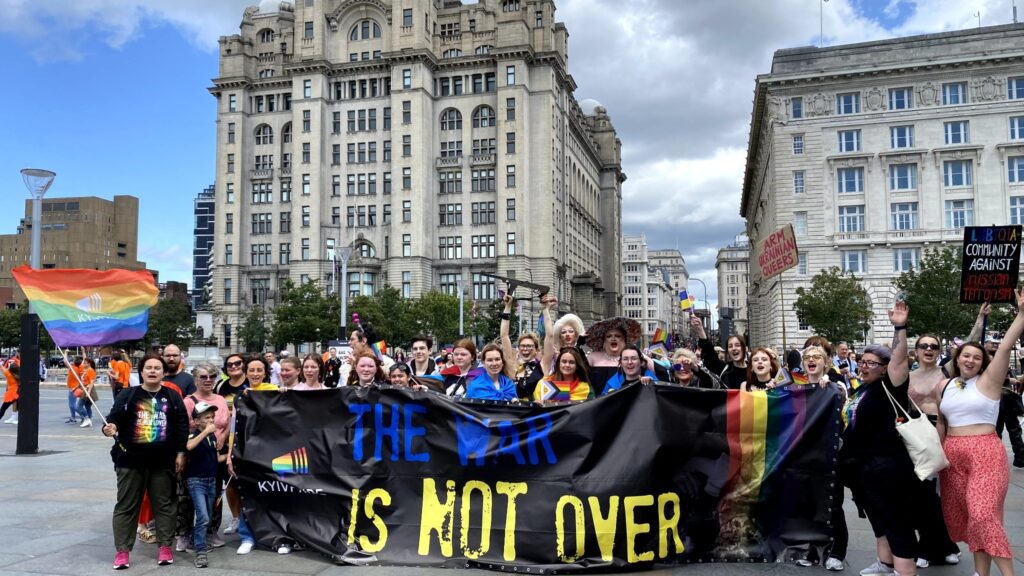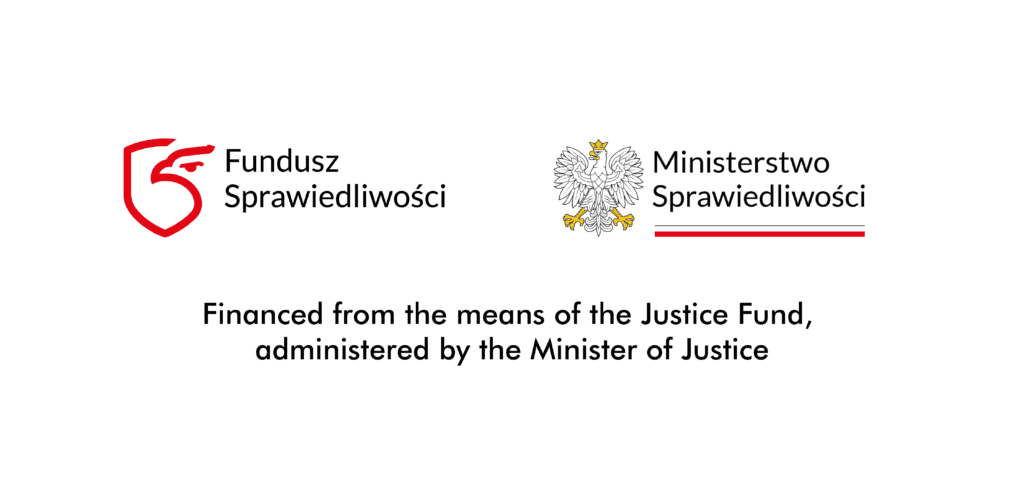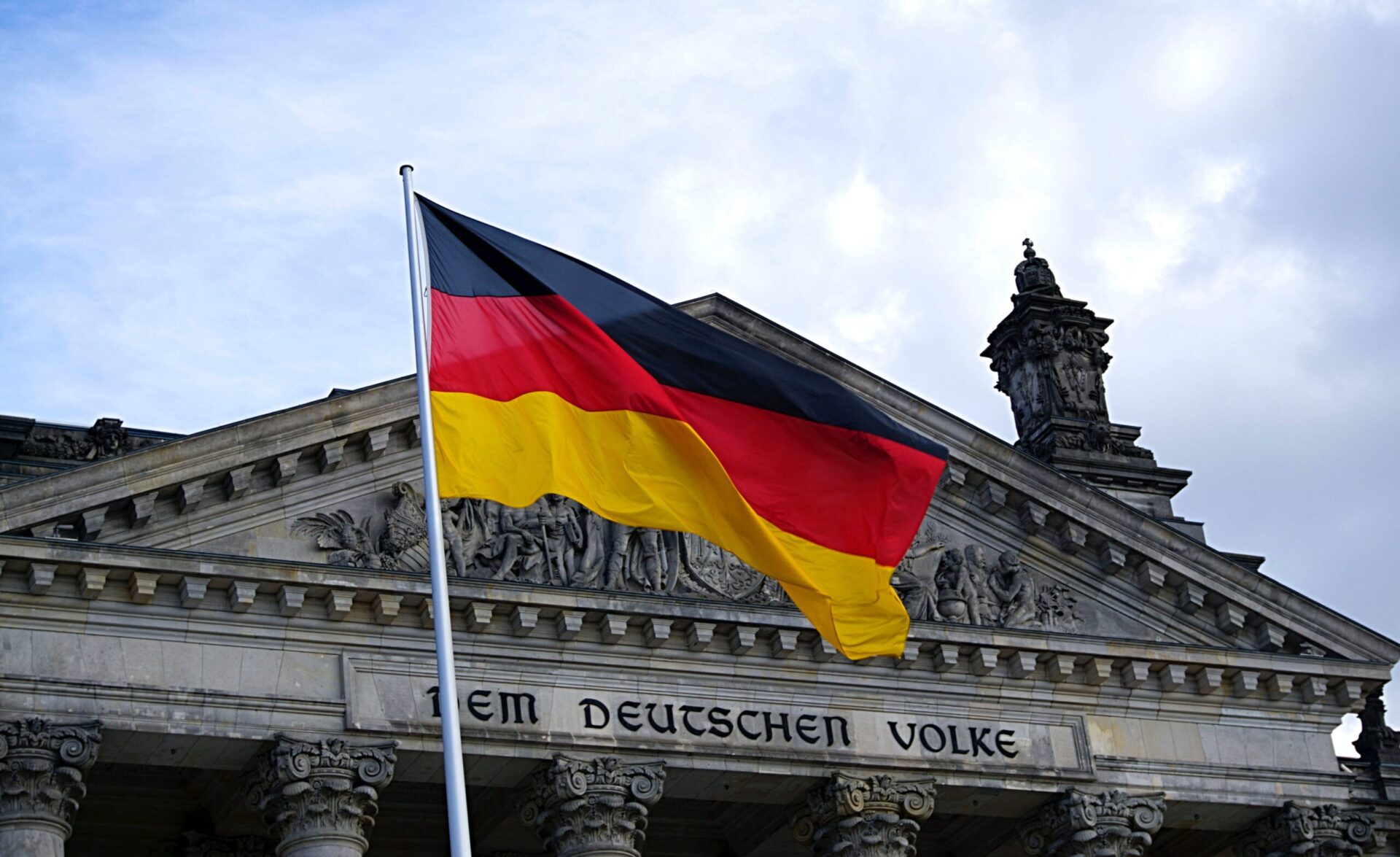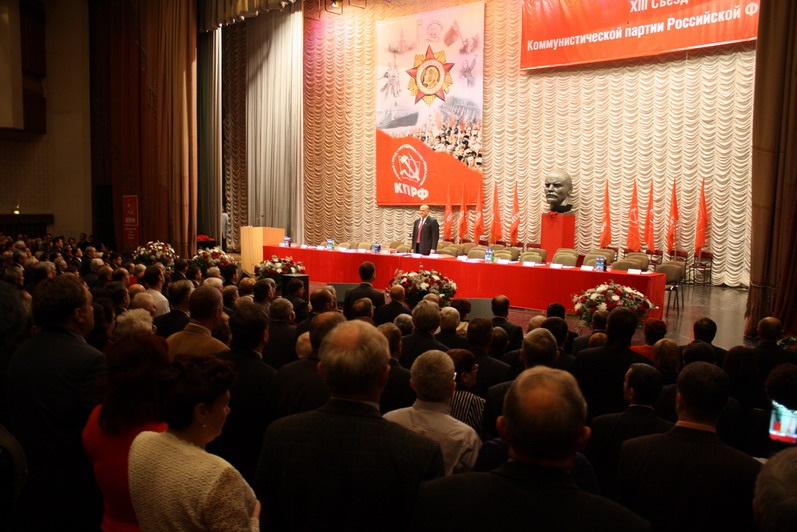The Rainbow–Banderite alliance in Ukraine

The dominant ideology in Ukraine is syncretic in nature. The cult of the genocidal OUN and UPA is now being combined with support for the LGBT movement. Extreme nationalism goes hand-in-hand with feminism. And all of this is accompanied by a superficial, albeit intense, fascination with the European Union.
Maciej Pieczyński
The title above contains an allusion to the situation in Russia in the late 1980s and early 1990s, when an exotic alliance of communists on the one hand and monarchists, nationalists, and neo-fascists on the other was formed. Although they were theoretically extremely distant from each other, they had a common denominator: their desire to save the empire from collapse. Whether the empire was to be red, white, or brown did not matter. What mattered was that it should be powerful militarily and vast in territory. Whether it was going to be the Soviet Union or Russia did not matter, either. This alliance has gone down in history under the name of the red-brown alliance. Although it was initially marginal, it eventually strongly influenced the political and above all ideological shape of modern Russia, which is a mix of Soviet and tsarist traditions.
It should be noted that in writing about the rainbow-brown alliance in Ukraine, I in no way intend to establish a moral equivalency between a state that is under attack and the aggressor state, however. The difference between the two is obvious. Nevertheless, some similarities seem obvious as well. In the victim country, as in the aggressor country, a syncretic worldview is dominant in politics, the media, and public opinion. It is a worldview that combines the extremes of the left and right. If in Russia we speak of a red-brown alliance, then by analogy, in the case of Ukraine, it seems justified to speak of a rainbow-Banderite alliance, or even – with only a small dose of journalistic hyperbole – of a rainbow-brown alliance.
Feminism and the spirit of the Ukrainian Insurgent Army (UPA)
This ideological syncretism is difficult to understand in Poland, Ukraine’s western neighbor, where the divisions are clear. There, you would never see a progressive feminist defending the so-called “cursed soldiers” [the Polish partisans of World War II who turned their weapons against the Soviet occupation and the communist regime after the war]. Could the Polish writer, activist, and Nobel prizewinner Olga Tokarczuk, who is adored by the leftist elite, publicly honor and praise the heroes of the anti-communist underground, who died not for the sake of Poland’s membership in the European Union or the Istanbul Convention, but rather for the independence of their homeland? That sounds very unlikely.
Meanwhile, we can see such a mix of seemingly contradictory attitudes in Oksana Zabuzhko, who, with only slight exaggeration, can be called the Ukrainian Olga Tokarczuk. The two prominent writers are friends, by the way.
The novel Fieldwork in Ukrainian Sex by Oksana Zabuzhko, which was first published in 1996, was considered the first manifesto of Ukrainian feminism. “There are 3,000 women at the front, and another thousand are reservists who stand ready to replace their sisters if needed. Equality between men and women is being born on the front lines and is watered by women’s blood,” Zabuzhko said at the inauguration of the international Women’s Congress that was held late last year in Brussels. As reported by Wysokie Obcasy (High Heels), a weekly supplement of the Polish left-wing daily newspaper Gazeta Wyborcza, the Ukrainian writer stressed that today in Ukraine, “it is no longer acceptable to make sexist comments on the street, because everyone knows that women are fighting. The same goes for people belonging to the LGBT community who have also gone to the front.”
Oksana Zabuzhko considers Roman Shukhevych to be a national hero of Ukraine, although he was a Nazi collaborator who took part in the killing of Jews and was also one of the perpetrators of the Galicia-Volhynia massacres in which Ukrainian nationalists killed tens of thousands of Polish civilians during World War II.
In 2016, on the 66th anniversary of his death, she published an extensive commemorative post about him on Facebook. Incidentally, she proudly mentioned the fact that it was the anger of the people in 2014 that prevented the “Russian world” from winning in Odessa. In doing so she did not mention that during those street clashes, Ukrainian patriots chased dozens of pro-Kremlin activists into the Odessa House of Trade Unions, who were then burned alive there.
Of course, such brutal methods were used by Ukraine to defend its territorial integrity. Although a leftist sensibility would normally seek to make you condemn this crime. Zabuzhko said that “the spirit of the UPA commander-in-chief hovers over Odessa” and guards it – which may sound ambiguous in this context, given Shukhevych’s record. According to the writer, the man who created “the most powerful resistance army in Europe” is “the perfect Hollywood hero.” No, no, she is not referring to the commanders of the Polish Home Army. Zabuzhko considered the biggest partisan army – by implication, one fighting against the German and Soviet occupations – to be the Banderite UPA under the command of Shukhevych. Here is what she wrote about her hero: “May he continue to protect us. And Odessa, and all of us – the whole […] of Ukraine. The history of the 20th century has left us with few geniuses – those who were able to accomplish their mission. Roman Shukhevych is precisely one of those few who single-handedly changed the course of history. And not only Ukrainian history. When we understand him, we will learn to win.”
Of course, Zabuzhko praises the Ukrainian Insurgent Army not for the genocide in Volhynia (she admits that Ukrainians killed Poles, but adds that both sides had blood on their hands), but for their post-war struggle against the Soviets. Still, we are talking about a left-liberal intellectual who disassociates herself from nationalism and calls herself a feminist and a humanist. Could we imagine for a second Olga Tokarczuk or any other prominent Polish writer of a similar ideological bent praising Poland’s Romuald Rajs “Bury”, who committed war crimes, or even less controversial figures such as Łupaszka, “Inka,” or even Witold Pilecki? Is it conceivable that the left side of the ideological dispute in Poland would defend their own nation against allegations of war crimes and put those to whom these crimes are attributed on a pedestal?
Zabuzhko also ironically notes the fact that in Odessa in the 1990s, the post-communists had to choose between the names of European Street or Shukhevych Street (both to the dislike of Moscow). Such a dilemma is symbolic. For many contemporary intellectuals, politicians, and opinion leaders in Ukraine, pro-Europeanism – or more broadly, pro-Westernism – and sympathy for the Ukrainian Insurgent Army are not only not mutually exclusive, but actually complement each other. The Banderites fought after the war against the overwhelming forces of their Soviet enemy. Thus they were an underdog, worthy of sympathy. This is how the UPA fighters are defended in relation to leftist positions in Ukraine.
A leading figure of pro-EU neo-Banderism is former President Petro Poroshenko, who is now the leader of a party with the telling name of European Solidarity. During his tenure, UPA partisans and activists of the Organization of Ukrainian Nationalists (OUN) were granted the status of soldiers who had fought for their country’s independence. Legislation was also introduced that enacted penalties for disrespecting veterans or denying the rationale of their struggle. The relevant bill was submitted to parliament by Yuriy Shukhevych, Roman’s son.
Ukraine has to choose whether it wants to be an ally or a resource
Ukrainian misunderstanding
The program of Poroshenko’s party does not include a single word of support for the left-liberal ideology that is prevalent among the elites in Brussels, Berlin, or Paris. Among the list of values officially espoused by the party, we find dignity, patriotism, responsibility, democracy, and justice. Its main goal is Ukraine’s entry into the European Union and NATO. And this is a key point for understanding the basis of the “rainbow-brown alliance.” Poroshenko’s party, like the uncontested majority of the current political scene, is a product of the Euromaidan Revolution. In the fall of 2013, Ukrainians took to the streets to protest their country turning away from EU integration. One of the most important slogans of the revolution was “Ukraine is Europe.” Once that was said, there was in fact a lack of detailed knowledge of what this Europe really is.
Judging by the political programs and proclaimed views of some of the country’s political parties, this is still lacking today. Ukrainians wanted to live as people do in the West, earn money as in the West, and benefit from the support – including military support – of the West. Ideological disputes have never been as serious and in-depth in Ukraine as they are in Poland, for example. This is how ideological syncretism became possible. Like the Russians, the Ukrainians have in a sense experienced the death of “two gods”: first Orthodox Christianity was killed by Communism, which took its place, becoming a quasi-religion before it, too, finally wore out and died. In a world where all ideologies have been exhausted, you can juggle with them freely and according to your needs. But some fixed landmarks remain. In Russia, this is imperialism: anything that serves to preserve a large, strong, and expansive state is good.
In Ukraine, on the contrary, it is anti-imperialism. That is, anything that serves to rid Ukraine of the fetters of Russian rule is good. Banderite nationalism is good because the UPA set an example of a heroic fight against Moscow. Joining the EU and NATO is good, too, because a pro-Western course not only allows for independence from Russia, but also offers hope for better standards of living. On balance, Ukrainian society is still quite conservative and pro-EU at the same time due to a lack of understanding of what the European Union is.
This is why successive Ukrainian leaders have succumbed to pressure from the West without much hesitation, counting on its help in return. Kyiv got to sign an association agreement with the EU and had the visa requirements for its citizens lifted by banning discrimination on the basis of sexual orientation and gender identity in 2015. After the Russian invasion, Ukraine then, after many years of procrastination, ratified the Istanbul Convention, ie. the Council of Europe Convention on preventing and combating violence against women and domestic violence, which, according to its critics, promotes gender ideology.
Since 2018, there has been an organization in Ukraine supporting LGBT soldiers who, especially after February 24, 2022, now proudly display their patriotism in the media. American transsexual Sarah Ashton-Cirillo (formerly John Cirillo) became the spokesperson for Ukraine’s Territorial Defense [before he was suspended in late September]. More bills and petitions on civil unions are being drafted, which are often justified from the standpoint of patriotic positions (as support for homosexuals fighting on the front lines and their partners). Successive post-Euromaidan presidents succumbed to these tendencies, but they did not rejoice in them. Neither Poroshenko nor Zelensky, for example, accepted invitations to the Gay Pride march. Zelensky has called gay marriage unconstitutional, but has supported the idea of civil unions. At the same time, all these concessions to the West are nevertheless in no way about settling accounts with the dark pages of Ukraine’s history.
European Commission prioritizing LGBT agenda over general interest of the EU
At one time, back in the era of hybrid warfare, the U.S. Congress banned the supply of weapons to the Azov regiment, and in the House of Representatives the idea was circulated of putting it on the state’s list of terrorist organizations. Americans were not bothered by the whitewashing of nationalist criminals, however; only by the controversy over modern neo-Nazi sympathies. From time to time, Jewish circles, as well as Poland, protest against the cult of Bandera or Shukhevych.
The scandal over the honoring of a veteran of the SS Galicia Division in Canada, right before Zelensky’s eyes, did not compel the Ukrainian leaders to put ashes on their heads, either. Only Justin Trudeau apologized for what had happened, and the Ukrainian media even excused the Nazi collaborators for the most part, arguing that they had fought for their homeland – and besides, they were not charged with anything at Nuremberg. Even the SS symbol does not bother everyone in Ukraine. Neither does it bother the West in general, so Kyiv, even while painting its image in rainbow colors, refuses to remove the brown colors that are already present. What’s more, Ukraine boasts about them. According to many commentators, the war was supposed to dethrone Bandera and Shukhevych in favor of modern heroes. These were to be popular heroes who would also be known personally by ordinary Ukrainians, and they would be free of controversy, unlike their predecessors. This did not happen.
Russia supports banderization
Paradoxically, the banderization of Ukraine is being assisted today by Russia. In Ukraine, the disputes surrounding the OUN and UPA most often arose not so much over differences in views of the Volhynia massacres (about which the Ukrainian public generally either knows nothing, or knows only that it was one of the episodes in the Polish-Ukrainian war, in which Poland was the aggressor), but from differing attitudes toward Russia and the USSR.
If anyone was hurt by the cult of the nationalists, it was the Russian-speaking residents of the south and east of the country who had family ties to the Soviet administration, and either had victims of the Banderites in their families or had themselves grown up hating Bandera under the influence of Soviet propaganda. In addition, many Ukrainians served in the Red Army. Even if they were forcibly conscripted, neither they nor their descendants were necessarily fond of the UPA. But after February 24, 2022, when the east and south of Ukraine fell victim no longer to hybrid but full-scale aggression from Moscow, the situation changed. Fondness for anything Soviet or Russian has irretrievably faded away. And for lack of better role models, and with a superficial knowledge of history that has been shaped by propaganda (formerly Soviet, and now Ukrainian), the “ideal” heroes even for Russian speakers became Bandera and Shukhevych.
Their legacy has become relevant, and not only in terms of the struggle against Moscow for independence itself. Extreme nationalism is also in vogue, as evidenced by the radical derussification of public spaces and culture, and the fight against the Ukrainian Orthodox Church, i.e. the Moscow Patriarchate. The latter is more nationalistic than anticlerical. At the same time, the Ukrainian state supports religious associations that have unequivocally cut themselves off from Moscow. Bandera and Shukhevych have benefited from derussification. Street names and monuments associated with Russian culture are giving way to memorials dedicated to the OUN and UPA “heroes”. This is also happening in the east of the country.
So far, no nation except Poland, which has been inconsistent in this demand, has given Ukraine an ultimatum: either Europe or Bandera. Perhaps the West, following in the footsteps of Ukrainian intellectuals, has come to believe the fable of the UPA as an oppressed minority. “The east of Ukraine is becoming Banderist,” Serhiy Taran triumphantly announced some time ago. This comment by the well-known political scientist was reprinted on the website of Espreso TV, which is affiliated with Poroshenko’s camp. Where does such a diagnosis come from? Well, it comes from the fact that over 90 percent of Ukrainians favor joining the EU and 80 percent favor joining NATO. This is now true for the east of the country, too. And if someone in Ukraine is a supporter of integration with the West, he or she is automatically also an admirer of the OUN and UPA – i.e. a pro-European, enlightened, tolerant, nationalist, progressive, feminist, rainbow-brown Ukrainian patriot.
Logical, right?
This article was first published in Polish in the Do Rzeczy weekly in November 2023.




